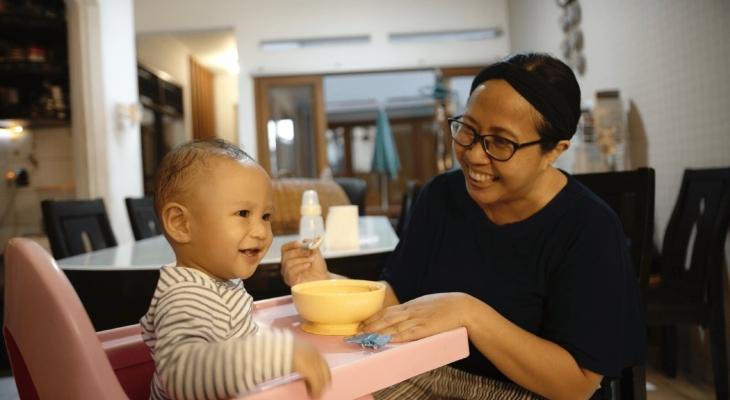
In Indonesia, the miracle of motherhood can be shadowed by a harsh reality: the struggles of postpartum depression and a lack of access to healthcare support. The weight of isolation, guilt, and despair, amplified by a lack of understanding and resources, are factors that prevent equality for mothers. Founder of MotherHope Indonesia (MHI), Nur Yanayirah, struggled through a lonely journey of postpartum depression herself when she lost her first child to stillbirth and after the birth of her second child. She recognised the pain and struggles of a mother, and it compelled her to start a non-profit organisation in Bekasi City to help mothers across Indonesia.
Postpartum depression has many faces, and it looks different for each person.
You might hate yourself as a woman or feel guilty that you are not bonding with your baby as a mother. The nights are long with insomnia, or you might be low on energy and unable to get out of bed. You feel the intensity of emotions and a heightened sensitivity to mood swings. You might even harbour thoughts of self-harm.
But how can you tell someone that you are struggling when bringing a child into the world is celebrated as one of the joys in life?
Founder of MotherHope Indonesia (MHI), Nur Yanayirah, struggled through a lonely journey of postpartum depression herself when she lost her first child to stillbirth, and after the birth of her second child. She recognised the pain and struggles of a mother, and it compelled her to start a non-profit organisation in Bekasi City to help mothers across Indonesia.
She explains the cultural expectations of a mother in Indonesia, “As a mother or as a parent, we are always required to be happy, to always be strong, not to be sad, not to cry, not to be whiny, not to be weak.”
The stigma attached to postpartum depression contradicts the image of a ‘perfect mother’ - one who had a natural childbirth, has a strong body, and is happy. However, the reality is childbirth often leaves mothers physically exhausted due to fluctuating hormonal changes, with little respite. They have to comply with breastfeeding demands and fulfil maternal duties to uphold societal expectations of being a ‘perfect’ wife or mother. This societal pressure pushes women to hide their depression, hindering them from seeking necessary support and help. As a result, postpartum depression can easily go undetected or be dismissed as a lack of ‘perfection’ instead of being diagnosed and addressed. Factors that prevent equality for these women.
Mothers, after childbirth, are in the most vulnerable state. They must have ample rest, consume enough nutrition, be supported in looking after the infant, and have the validation of family or friends in the first forty days of delivery.
“When the wife experiences postpartum depression, the father is at two to three times the risk of also experiencing postpartum depression,” Yana explains, adding that one in ten fathers are also at risk and often don’t know how to navigate and express their emotions well, which can manifest as anger, aggressiveness, or dependence on vices.
MHI welcomes mothers and fathers in their support groups, teaching them the right tools to support each other in their new parenthood journey. Participants learn to change how they communicate their feelings, especially between spouses. Additionally, they hold seminars and workshops on healthy communication and teach participants how to ask for help without feeling angry or guilty. MHI also connects them to mental health professionals who can provide greater support in their areas of need.
Adopting the African proverb, ‘It takes a village to raise a child’, MHI is run by 200 volunteers who are primarily midwives themselves or people with lived experiences, who have gone on to help empower and bring equality to over 58,000 women across Indonesia.